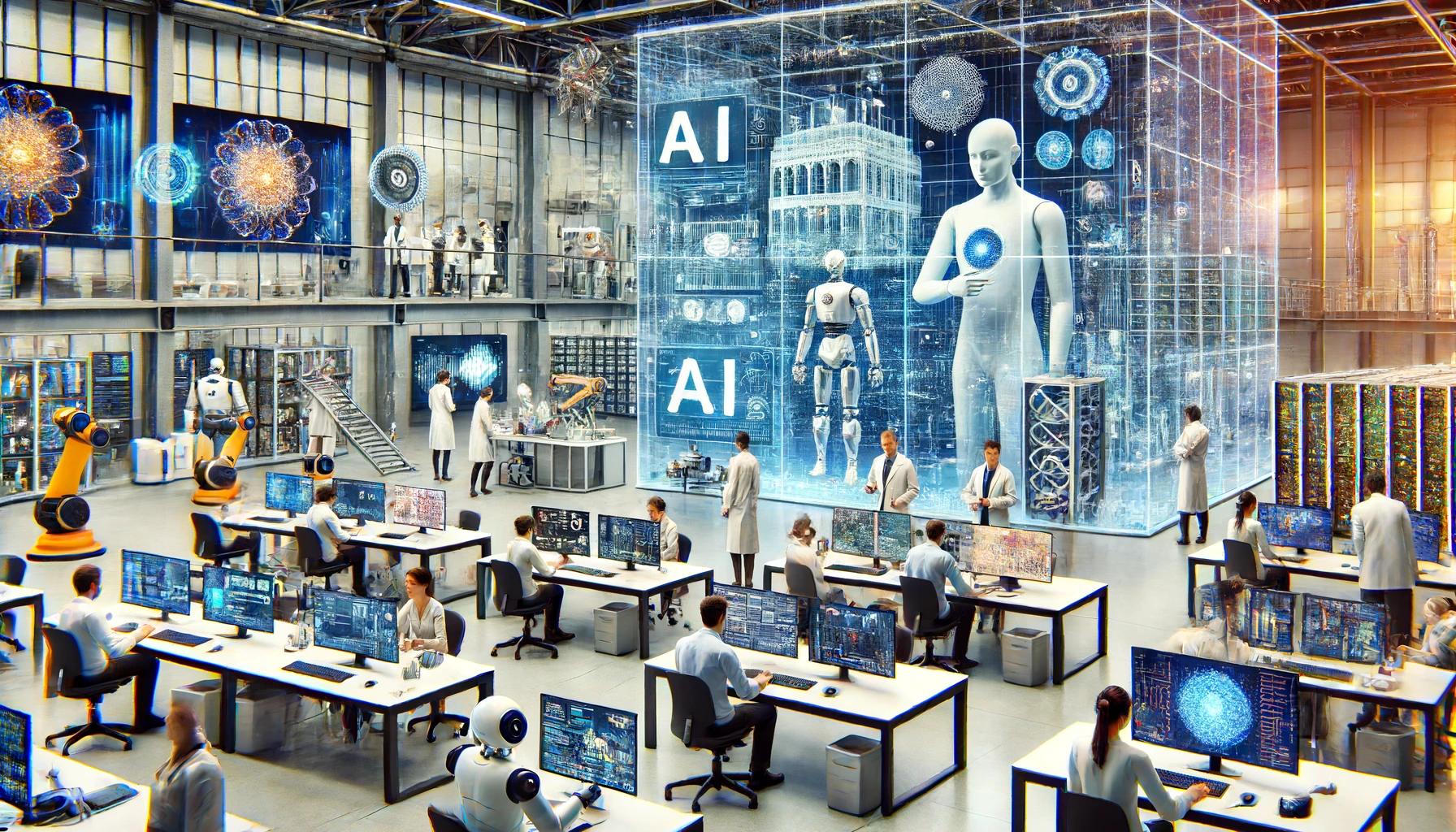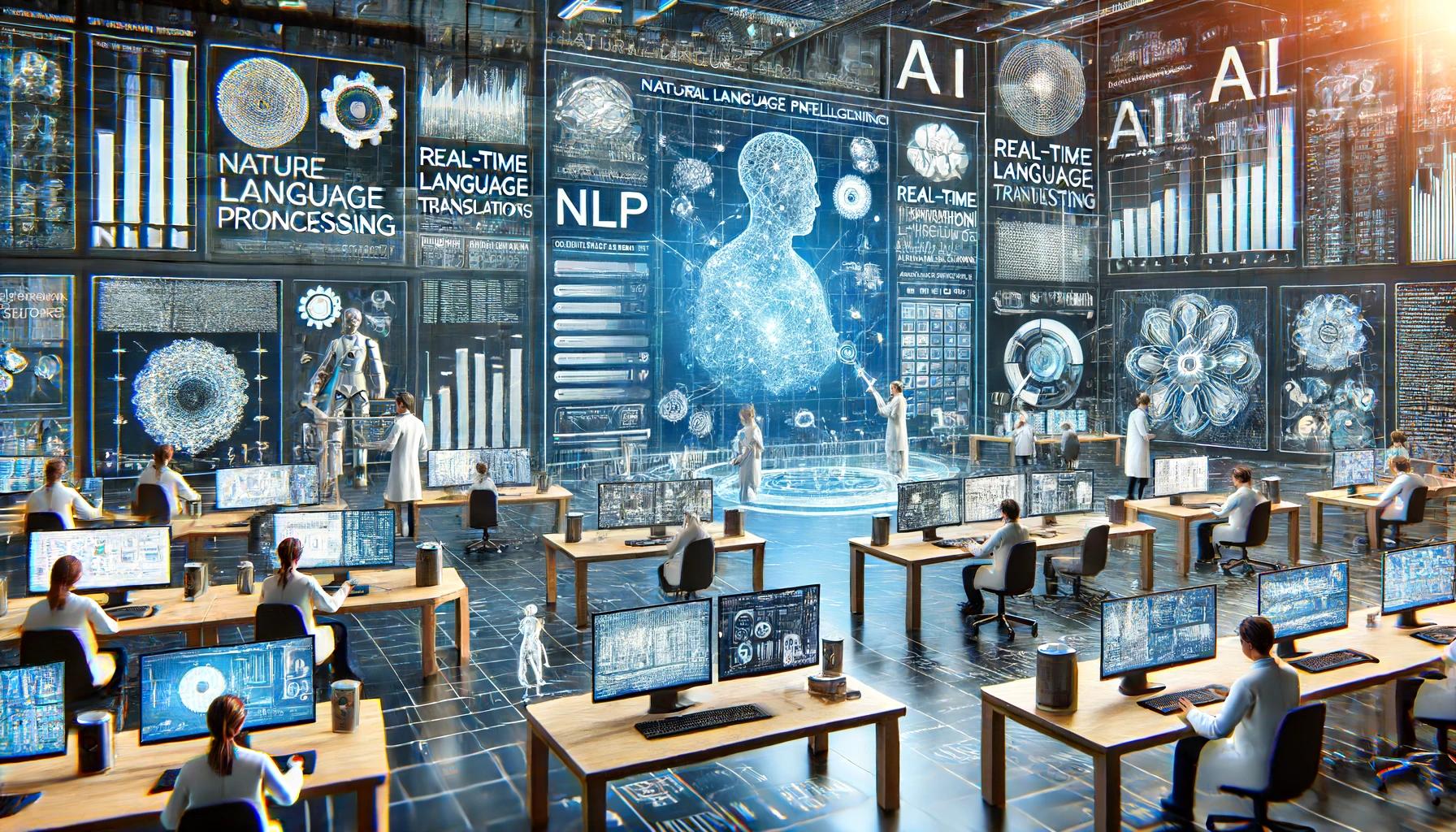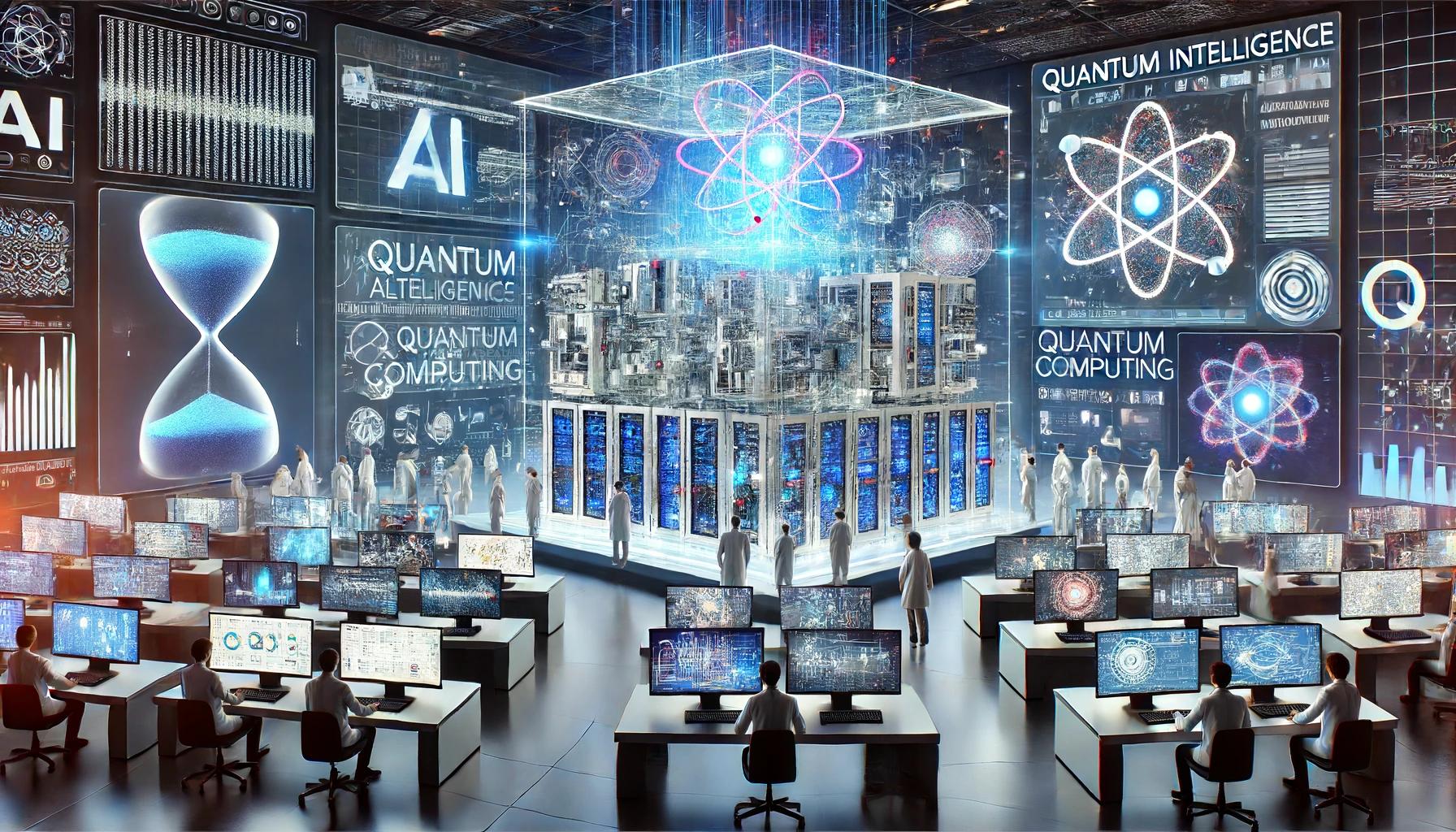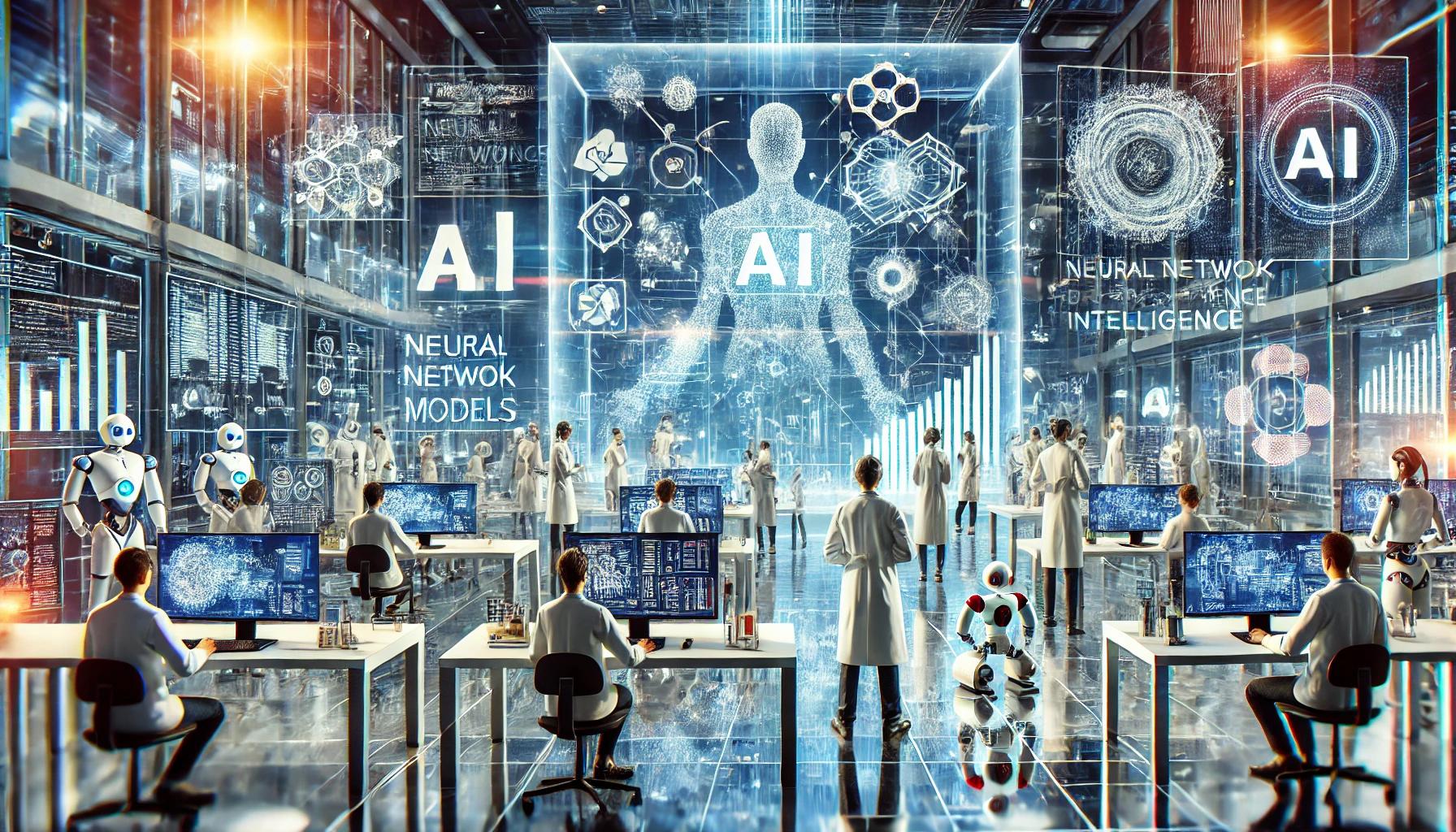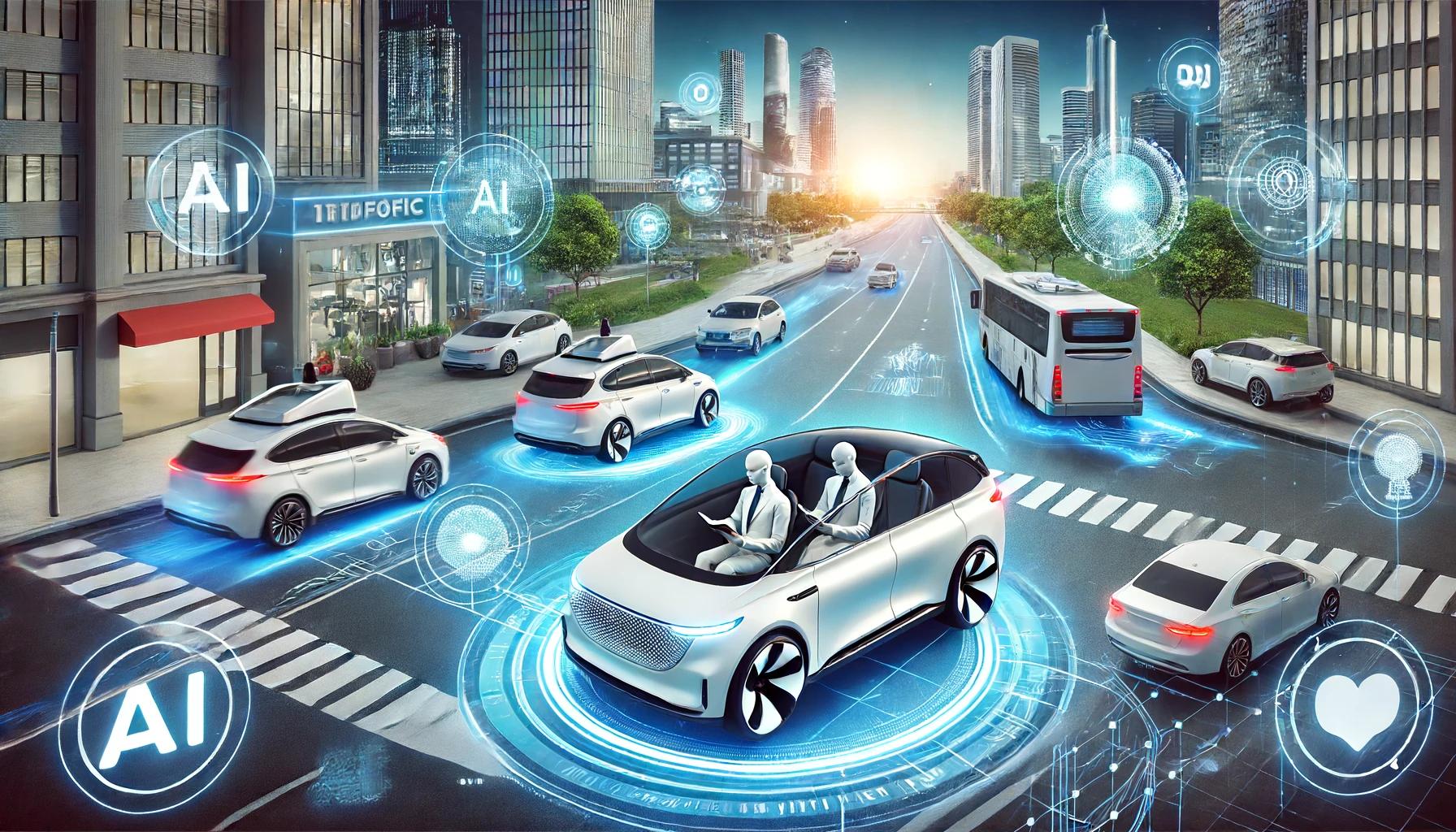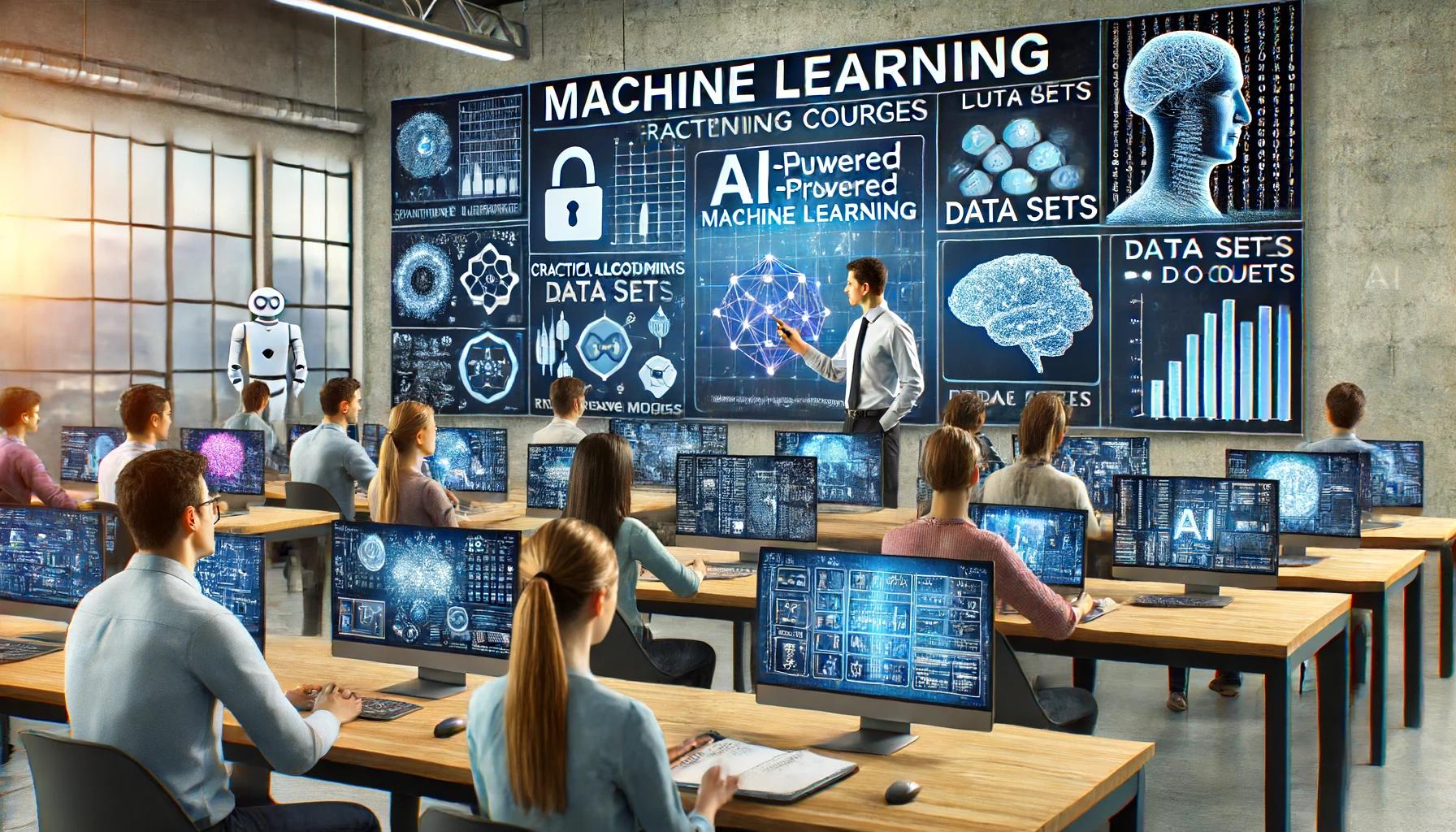- Brief Introduction to Artificial Intelligence (AI)
- Importance of AI in Modern Technology
- Background of OpenAI
- Founding and Mission
- Key Projects and Milestones
- Contributions to AI Research and Development
- Background of DeepMind
- Founding and Mission
- Key Projects and Milestones
- Contributions to AI Research and Development
- Comparative Analysis
- Differences in Approach and Philosophy
- Key Achievements and Breakthroughs
- Impact on the AI Community and Industry
- Major Contributions to AI
- OpenAI’s Significant Projects
- DeepMind’s Significant Projects
- Ethical Considerations
- OpenAI’s Stance on AI Safety and Ethics
- DeepMind’s Approach to Ethical AI Development
- Collaborative Efforts and Shared Goals in Ensuring Ethical AI
- Future Prospects
- Upcoming Projects and Research Directions for OpenAI
- Upcoming Projects and Research Directions for DeepMind
- Potential Collaborations and Competition in the AI Space
Brief Introduction to Artificial Intelligence (AI)
Artificial Intelligence (AI) is a branch of computer science dedicated to creating systems capable of performing tasks that typically require human intelligence. These tasks include problem-solving, learning, planning, and understanding natural language. AI technology has evolved significantly over the past few decades, moving from simple rule-based systems to sophisticated machine learning algorithms that can analyze vast amounts of data and make predictions or decisions based on that analysis.
To delve deeper into AI and its foundational concepts, you can explore resources like Stanford’s AI Principles and the AI section of the Encyclopedia Britannica.
Importance of AI in Modern Technology
The importance of AI in modern technology cannot be overstated. AI is transforming industries by automating processes, enhancing decision-making, and providing new insights through data analysis. In healthcare, AI is used to develop more accurate diagnostic tools and personalized treatment plans. In finance, it improves fraud detection and risk management. In transportation, AI powers autonomous vehicles and optimizes traffic management systems.
Moreover, AI has become integral to everyday applications, such as virtual assistants (e.g., Siri, Alexa), recommendation systems (e.g., Netflix, Amazon), and smart home devices. Its ability to analyze and interpret large datasets allows businesses to understand customer behavior better and enhance user experiences.
For more information on how AI is impacting various sectors, visit IBM’s AI in Business and the McKinsey Global Institute’s Report on AI.
Background of OpenAI
Founding and Mission
OpenAI was founded in December 2015 by a group of tech visionaries including Elon Musk, Sam Altman, Greg Brockman, Ilya Sutskever, John Schulman, and Wojciech Zaremba. The organization’s mission is to ensure that artificial general intelligence (AGI) benefits all of humanity. OpenAI aims to conduct cutting-edge research in AI, promote and develop friendly AI, and advocate for AI safety and ethical standards.
For more details on OpenAI’s mission and values, you can visit OpenAI’s About Page.
Key Projects and Milestones
OpenAI has been at the forefront of several groundbreaking AI projects:
- GPT Series: The Generative Pre-trained Transformer (GPT) models, including GPT-2 and GPT-3, have set new benchmarks in natural language processing. These models are capable of generating human-like text and have a wide range of applications from chatbots to content creation.
- DALL-E and CLIP: These models demonstrate advanced capabilities in generating and understanding images. DALL-E can create images from textual descriptions, while CLIP can understand and categorize images based on textual inputs.
- OpenAI Codex: This model powers GitHub Copilot, an AI-based code completion tool that assists developers by suggesting code snippets and functions as they write.
- OpenAI Gym: A toolkit for developing and comparing reinforcement learning algorithms, widely used in both academia and industry for AI research.
For an overview of OpenAI’s projects, you can explore OpenAI’s Research Page.
Contributions to AI Research and Development
OpenAI has made significant contributions to AI research and development, pushing the boundaries of what AI can achieve:
- Advancing Natural Language Processing: The GPT models have revolutionized the field of NLP by demonstrating the power of large-scale language models.
- AI Safety and Ethics: OpenAI is committed to ensuring the safe and ethical development of AI. They have published numerous papers on AI alignment, safety, and policy, advocating for responsible AI practices.
- Collaboration and Open Science: OpenAI promotes collaboration within the AI community by sharing their research findings, code, and models with the public. This open approach has accelerated progress in AI research globally.
- Pioneering AI Applications: Through projects like Codex and DALL-E, OpenAI has showcased the practical applications of AI, from software development to creative arts.
To learn more about OpenAI’s contributions to AI research, you can visit OpenAI’s Publications.
Background of DeepMind
Founding and Mission
DeepMind was founded in September 2010 by Demis Hassabis, Shane Legg, and Mustafa Suleyman. Acquired by Google in 2015, DeepMind’s mission is to solve intelligence and then use that to solve everything else. The company aims to push the boundaries of AI research, develop technology that can learn and adapt like humans, and apply this technology to solve real-world problems.
For more information on DeepMind’s mission and goals, visit DeepMind’s About Page.
Key Projects and Milestones
DeepMind has achieved several remarkable milestones in AI research:
- AlphaGo: In 2016, AlphaGo became the first AI to defeat a world champion Go player, Lee Sedol. This achievement demonstrated the potential of deep reinforcement learning and marked a significant milestone in AI history.
- AlphaFold: DeepMind’s AlphaFold project revolutionized the field of biology by predicting protein structures with unprecedented accuracy. This breakthrough has significant implications for drug discovery and understanding diseases.
- DeepMind Health: DeepMind has collaborated with medical institutions to develop AI tools that assist in diagnosing and predicting diseases. Their AI systems have shown promise in improving patient outcomes and streamlining healthcare processes.
- MuZero: This algorithm learns to play games without knowing the rules in advance. It represents a step towards creating more general and adaptive AI systems.
- WaveNet: A deep generative model for producing human-like speech, which has been integrated into Google Assistant, making voice interactions more natural and engaging.
For a comprehensive overview of DeepMind’s projects, visit DeepMind’s Research Page.
Contributions to AI Research and Development
DeepMind has made substantial contributions to AI research and development, driving progress across various domains:
- Reinforcement Learning: DeepMind has pioneered the use of reinforcement learning to train AI systems. Techniques developed by DeepMind, such as deep Q-networks (DQN) and actor-critic methods, are widely adopted in the AI research community.
- Healthcare Applications: By leveraging AI to analyze medical data, DeepMind has made significant strides in healthcare. Their collaboration with the NHS and other medical institutions has led to the development of AI systems that can detect eye diseases, predict patient deterioration, and more.
- AI Ethics and Safety: DeepMind is committed to the ethical development of AI. They have established research teams dedicated to AI safety, ethics, and governance, ensuring that AI technologies are developed responsibly.
- Interdisciplinary Research: DeepMind collaborates with experts from various fields, including neuroscience, mathematics, and physics, to tackle complex problems. This interdisciplinary approach has led to breakthroughs in both AI and other scientific domains.
- Open Research: DeepMind publishes its research findings in peer-reviewed journals and conferences, contributing to the global AI knowledge base. They also release tools and datasets to support the wider research community.
To explore DeepMind’s contributions in detail, you can visit DeepMind’s Publications.
Comparative Analysis
Differences in Approach and Philosophy
OpenAI:
- Mission-Driven: OpenAI was established with the mission to ensure that artificial general intelligence (AGI) benefits all of humanity. Their approach emphasizes openness, safety, and ethical considerations in AI development.
- Transparency: OpenAI is known for its commitment to open science. They frequently publish research papers, release code, and share models with the broader community to promote transparency and collaboration.
- Commercial and Non-Profit Hybrid Model: Initially founded as a non-profit, OpenAI has transitioned to a capped-profit model with OpenAI LP. This structure aims to balance the need for capital to scale their research while adhering to their ethical guidelines.
For more about OpenAI’s approach, visit OpenAI’s Charter.
DeepMind:
- Scientific Research Focus: DeepMind operates with a strong emphasis on solving fundamental scientific problems using AI. Their philosophy is grounded in advancing AI capabilities through rigorous research and interdisciplinary collaboration.
- Integration with Google: As part of Alphabet Inc., DeepMind benefits from Google’s vast resources and infrastructure, allowing for extensive experimentation and deployment of AI technologies.
- Ethical Commitment: DeepMind has established teams dedicated to AI ethics and safety, ensuring their technologies are developed responsibly. They prioritize long-term ethical considerations and the societal impact of their AI solutions.
For more on DeepMind’s philosophy, check out DeepMind’s Ethics & Society.
Key Achievements and Breakthroughs
OpenAI:
- GPT Series: The development of the Generative Pre-trained Transformer (GPT) models, particularly GPT-3, which has set new standards in natural language processing and generation.
- DALL-E and CLIP: Innovations in generating and understanding images from textual descriptions, showcasing the potential of AI in creative fields.
- Codex: The AI model powering GitHub Copilot, which aids developers by suggesting code, demonstrating practical applications of AI in software development.
DeepMind:
- AlphaGo: The first AI to defeat a world champion Go player, showcasing the power of deep reinforcement learning and complex problem-solving.
- AlphaFold: Breakthrough in predicting protein structures, significantly advancing the field of biology and having major implications for drug discovery and medical research.
- MuZero: An algorithm that learns to play games without knowing the rules, representing a step towards more general and adaptive AI systems.
Impact on the AI Community and Industry
OpenAI:
- Influence on NLP: The GPT models have significantly influenced natural language processing research, leading to numerous advancements and applications in various industries.
- Ethics and Safety Advocacy: OpenAI’s focus on AI safety and ethics has spurred discussions and initiatives across the AI community, promoting responsible AI development.
- Open Source Contributions: By sharing their research, models, and code, OpenAI has fostered collaboration and accelerated innovation within the AI research community.
DeepMind:
- Scientific Contributions: DeepMind’s interdisciplinary research approach has led to breakthroughs not only in AI but also in neuroscience, mathematics, and other scientific fields.
- Healthcare Innovations: DeepMind’s AI applications in healthcare have shown potential in improving diagnostic accuracy and patient outcomes, highlighting AI’s transformative impact on the industry.
- Industry Standards: DeepMind’s rigorous research and ethical standards have set benchmarks for AI development, influencing best practices across the AI industry.
To further explore the impact of these organizations, visit OpenAI’s Impact and DeepMind’s Achievements.
Major Contributions to AI
OpenAI’s Significant Projects
1. GPT Series: The Generative Pre-trained Transformer (GPT) series, particularly GPT-2 and GPT-3, have set new benchmarks in natural language processing. These models can generate coherent, contextually relevant text and have a wide range of applications, from chatbots to content creation. GPT-3, with its 175 billion parameters, is one of the largest and most powerful language models to date, capable of tasks such as translation, question-answering, and even creative writing.
For more details on the GPT series, visit OpenAI’s GPT-3 Page.
2. DALL-E and CLIP: DALL-E is an AI model that can generate images from textual descriptions, showcasing the ability to create visual content based on detailed prompts. CLIP (Contrastive Language–Image Pretraining) can understand and categorize images based on textual inputs, bridging the gap between language and vision in AI. These models highlight OpenAI’s innovative approach to multimodal AI systems.
Learn more about DALL-E and CLIP on OpenAI’s Research Page.
3. Codex: OpenAI Codex is the AI model behind GitHub Copilot, an AI-powered code completion tool that assists developers by suggesting code snippets and functions. Codex demonstrates the practical application of AI in software development, helping to enhance productivity and reduce repetitive coding tasks.
Explore Codex and its capabilities on OpenAI’s Codex Page.
4. OpenAI Gym: OpenAI Gym is a toolkit for developing and comparing reinforcement learning algorithms. It provides a variety of environments to test and benchmark AI algorithms, becoming a standard tool in the AI research community for developing and testing reinforcement learning models.
Check out OpenAI Gym on OpenAI’s Gym Page.
DeepMind’s Significant Projects
1. AlphaGo: AlphaGo made history by becoming the first AI to defeat a world champion Go player, Lee Sedol, in 2016. This achievement demonstrated the potential of deep reinforcement learning and advanced the field of AI by solving one of the most complex board games, which has more possible positions than atoms in the observable universe.
Learn more about AlphaGo on DeepMind’s AlphaGo Page.
2. AlphaFold: AlphaFold revolutionized biology by predicting protein structures with unprecedented accuracy. This breakthrough has significant implications for understanding diseases, drug discovery, and biological research. AlphaFold’s ability to solve the protein folding problem, which has been a challenge for decades, marks a milestone in both AI and biology.
Explore AlphaFold’s contributions on DeepMind’s AlphaFold Page.
3. MuZero: MuZero is an AI model that learns to play games without knowing the rules in advance. It represents a step towards creating more general and adaptive AI systems. MuZero combines the benefits of model-free and model-based learning, making it a versatile and powerful AI system.
Discover more about MuZero on DeepMind’s MuZero Page.
4. WaveNet: WaveNet is a deep generative model for producing human-like speech. It has been integrated into Google Assistant, making voice interactions more natural and engaging. WaveNet’s ability to generate high-quality, realistic speech has set a new standard in text-to-speech systems.
Learn about WaveNet on DeepMind’s WaveNet Page.
Ethical Considerations
OpenAI’s Stance on AI Safety and Ethics
OpenAI has been committed to ensuring that artificial intelligence benefits all of humanity. Their approach to AI safety and ethics revolves around the following principles:
- Transparency and Collaboration: OpenAI prioritizes transparency in its research and actively collaborates with the broader AI community to promote safe and ethical AI development. They publish research papers, share code, and engage in public discussions about the implications of their work.
- AI Alignment: OpenAI focuses on ensuring that AI systems align with human values and intentions. This includes researching techniques to make AI systems interpretable and controllable, thereby reducing the risks associated with unintended behaviors.
- Ethical Guidelines: OpenAI adheres to strict ethical guidelines that emphasize fairness, accountability, and inclusivity. They are committed to mitigating biases in AI systems and ensuring that AI technologies are developed and deployed responsibly.
For more details, visit OpenAI’s Safety and Policy Page.
DeepMind’s Approach to Ethical AI Development
Google DeepMind places a strong emphasis on ethical AI development, integrating ethical considerations into their research and applications. Key aspects of their approach include:
- Interdisciplinary Research: DeepMind collaborates with experts from various fields, including ethics, philosophy, and social sciences, to address the ethical implications of AI. This interdisciplinary approach helps in understanding and mitigating potential risks.
- AI for Social Good: DeepMind focuses on using AI to solve real-world problems that benefit society. Projects like AlphaFold, which aids in understanding biological structures, and healthcare collaborations demonstrate their commitment to positive societal impact.
- AI Safety Research: DeepMind’s Gemini team is dedicated to ensuring that AI systems are safe and aligned with human values. This includes researching robust and interpretable AI models that can be reliably controlled and deployed.
- Ethics and Society Team: DeepMind has an Ethics and Society team that works on understanding the broader impacts of AI on society. This team engages in policy discussions and collaborates with external organizations to shape ethical AI standards.
For more information, visit DeepMind’s Ethics & Society Page.
Collaborative Efforts and Shared Goals in Ensuring Ethical AI
Both OpenAI and DeepMind recognize the importance of collaboration in ensuring the ethical development of AI. They share several common goals and engage in collaborative efforts to promote safe and beneficial AI:
- Research Partnerships: OpenAI and DeepMind collaborate with academic institutions, industry partners, and government bodies to advance AI research and establish ethical standards. These partnerships help in pooling resources and expertise to address complex ethical challenges.
- AI Policy Advocacy: Both organizations are active in advocating for policies that promote ethical AI development. They participate in global forums and contribute to policy discussions on AI safety, transparency, and accountability.
- Shared Ethical Principles: OpenAI and DeepMind share a commitment to developing AI that aligns with human values and benefits society. This includes prioritizing fairness, reducing biases, and ensuring that AI technologies are accessible and inclusive.
- Safety Research Initiatives: The Gemini team at DeepMind and similar initiatives at OpenAI focus on researching AI safety mechanisms and developing guidelines for the responsible deployment of AI systems. These efforts aim to prevent harmful outcomes and ensure that AI technologies are used ethically.
Future Prospects
Upcoming Projects and Research Directions for OpenAI
1. Advancements in Natural Language Processing: OpenAI continues to push the boundaries of natural language processing (NLP) with ongoing development in the GPT series. Future models are expected to have improved contextual understanding, reduced biases, and enhanced capabilities in multilingual and multimodal tasks. These advancements aim to make AI systems more versatile and reliable in various applications.
2. AI Alignment and Safety Research: OpenAI is dedicated to deepening its research in AI alignment and safety. This includes developing methods to ensure that AI systems act in accordance with human intentions and values. Projects focused on interpretable and controllable AI are key to this endeavor, aiming to mitigate the risks associated with powerful AI systems.
3. Codex and AI in Software Development: Building on the success of Codex, OpenAI plans to enhance AI tools for software development. Future projects may include more sophisticated code generation, debugging, and software design assistance, making AI an integral part of the software development lifecycle.
4. AI for Scientific Discovery: OpenAI is exploring the use of AI to accelerate scientific research and discovery. This includes applying AI to fields such as biology, chemistry, and physics, where AI can assist in modeling complex systems, predicting outcomes, and generating new hypotheses.
For more information on OpenAI’s future directions, visit OpenAI’s Research Page.
Upcoming Projects and Research Directions for DeepMind
1. Advanced Reinforcement Learning: DeepMind is focusing on the next generation of reinforcement learning algorithms. These projects aim to create more adaptive and generalizable AI systems capable of learning from fewer interactions and transferring knowledge across different tasks and environments.
2. AI in Healthcare: DeepMind plans to expand its work in healthcare AI, leveraging models like AlphaFold to develop new diagnostic tools, treatment planning systems, and predictive models for patient care. Collaborations with medical institutions will continue to be a priority, aiming to translate AI research into practical healthcare solutions.
3. Interdisciplinary AI Research: DeepMind is committed to interdisciplinary research, exploring the intersections of AI with fields like neuroscience, quantum physics, and climate science. Projects in these areas aim to unlock new scientific insights and solve complex global challenges.
4. Ethical AI and Governance: The Gemini team and the Ethics and Society team at DeepMind are focusing on developing frameworks for ethical AI governance. This includes researching AI policy, creating guidelines for responsible AI deployment, and ensuring that AI systems are transparent, fair, and accountable.
For more details on DeepMind’s upcoming projects, visit DeepMind’s Research Page.
Potential Collaborations and Competition in the AI Space
1. Collaborative Research Initiatives: OpenAI and DeepMind are likely to engage in more collaborative research initiatives, leveraging their combined expertise to tackle global challenges. Joint projects in areas like healthcare, climate science, and fundamental AI research could accelerate progress and ensure that advancements benefit society as a whole.
2. Shared Ethical Standards: Both organizations are committed to ethical AI development. Future collaborations may focus on establishing and promoting global ethical standards and best practices for AI. This could involve joint policy advocacy, shared safety research, and collective efforts to address biases and ensure fairness in AI systems.
3. Competitive Innovations: While collaboration is crucial, OpenAI and DeepMind will also continue to compete in pushing the boundaries of AI technology. This competition drives innovation, with each organization striving to develop more advanced, efficient, and capable AI systems. Key areas of competition may include advancements in NLP, reinforcement learning, and AI applications in various industries.
4. Industry Partnerships: Both OpenAI and DeepMind will likely seek partnerships with industry leaders to deploy their AI technologies at scale. These partnerships can help integrate AI into real-world applications, from autonomous systems to personalized healthcare, enhancing the practical impact of their research.
